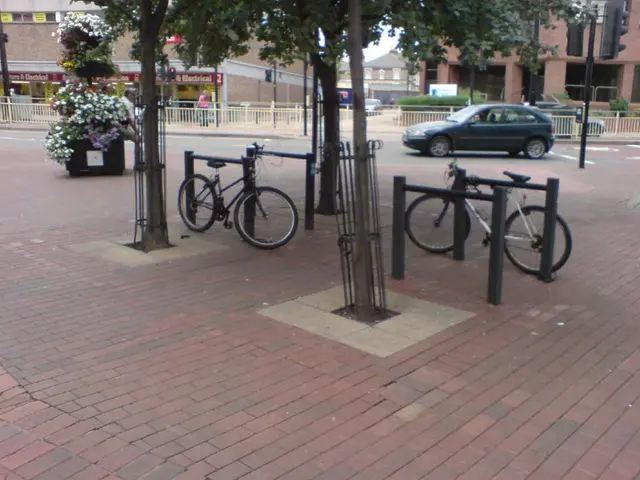Thuringia: Local AfD Members Actively Participating in County Committee
In the sleepy world of municipal committee decisions, the discussion on subsidies for a democratic education center was anything but dull. The district committee of Saale-Holzland, Thuringia, was taken aback by the controversy surrounding a grant application for the "Demokratieladen Kahla" project. This cultural hub, promoting history, politics, and more, has faced its fair share of neo-Nazi harassment over the years, yet still managed to flourish.
The Free State of Thuringia's "Denk bunt" program supports democracy projects with 90% state funds, the remaining 10% being the responsibility of the project carrier. In this case, the "Bildungswerk Blitz" association was seeking a modest 8,000 euros to cover their contribution for this year. District Administrator Johann Waschnewski (CDU) presented this application towards the end of May.
Negativity and skepticism filled the room as some committee members questioned the project's political neutrality. The AfD, in particular, criticized the Demokratieladen Kahla as an "exclusively ideologically oriented project." With three AfD members and the chairman of Bürgerinitiative Holzland voting against the application and the CDU members abstaining, the application was rejected. The Left/Green faction and SPD, however, were not deterred and vowed to continue supporting the project.
Shortly after the rejection, the team behind the Democracy Shop launched a crowdfunding campaign to raise the necessary funds. In just four days, they successfully collected the required local share, demonstrating the community's strong commitment to the project's success.
To ensure the project's long-term sustainability and create reliable structures, additional support from the district and state parliament is required. In the upcoming budget negotiations, it remains to be seen whether local CDU politicians will stand with the Demokratieladen Kahla or bow to political pressure from the AfD.
General analysis: The AfD, known for its right-wing and controversial political stances, often opposes projects that it perceives as opposed to its ideology. In this case, the party took issue with the Demokratieladen Kahla's mission. The project's future may face challenges due to funding uncertainties and political polarization; however, the community's support gives hope for its long-term resilience.
The rejection of the grant application for the "Demokratieladen Kahla" project, a cultural hub dedicated to education-and-self-development and personal-growth, has sparked a debate about politics and general-news in the district of Saale-Holzland, Thuringia. Despite facing war-and-conflicts in the form of neo-Nazi harassment, the project has persisted, demonstrating resilience and dedication. The project's future now hinges on budget negotiations, where crime-and-justice may play a role as the AfD, known for its right-wing ideology, opposed the project, and its influence on local CDU politicians is uncertain.








